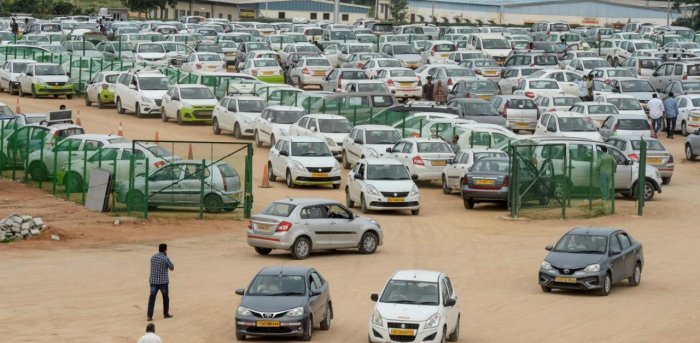Key Points:
- National Carpooling guidelines are set to be disclosed by the end of the year.
- This will help in controlling pollution to a large extent and also, will decongest the Metros’.
- The regulatory hurdles will also be managed well.
- Quick Ride, RedBus, and BlaBlaCar, apart from inter-city Ola and Uber will be benefitted and even, private cars can begin carpooling in order to reduce expenses.
- VEHICLE POOLING is one of the agenda items for the National Mission for Transformative Mobility and the rules are said to be largely the same.
The Union Road Transport and Highways Ministry is set to issue Nation-level guidelines on Shared Transport. The focus is on pooling services by private car owners which will help in tackling the pollution in the country and also, lessen the crowding in the Metros.
The centre has fixed a formal framework which is likely to give clarity to app-based services such as Quick Ride, RedBus, and BlaBlaCar1, on the base of which they can multiply the room of their services bringing in homogeneity in rules across states. This will also help in reducing the monitoring part of the transport.
Requesting anonymity, a Senior Government Official told Mint,
“The norms for ridesharing through non-transport private vehicles will be released in a month. The idea is to encourage adoption of shared mobility, via cars or bikes. After this, states will have to implement it at their own discretion,”
The decision of setting the previous rules with a larger framework involving the taxi aggregators was made by the Centre long back, but, the Covid-19 pandemic delayed the process.
What is Carpooling?
- An individual driving his personal car can offer rides to others travelling on the same route.
- Carpooling prevents the other people boarded to drive by themselves to a location.
- This can help in reducing commuting expenses and seeing the larger picture, will also be helpful to reduce pollution.
- One can carpool using existing services like Ola and Uber for the intercity travel.
- Uber in a blog post on September 1 said that, they have come up with a “COMMUTE” service that matches pairs of neighbours and co-workers travelling on similar paths, to save time, money and environment.
VEHICLE POOLING is one of the agenda items for the National Mission for Transformative Mobility and the rules are said to be largely the same.
Limiting the trips to four per day, restricting private carpooling on platforms except mobile apps which must be having a KYV System, declaring the trips of the details, splitting the cost and helping the state government earn revenues too, were the 2019 guidelines by the Transport Ministry to avoid Carpooling from turning into a commercial business.

